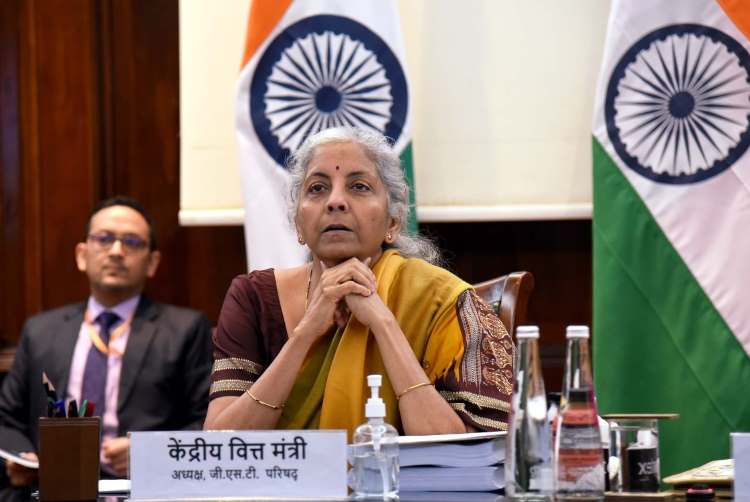
The upcoming Union Budget 2022-23 is an opportunity for the government to put India on a definitive sustainable development trajectory amid rising global uncertainties, falling incomes, and widening inequalities. It should reflect on the initiatives of the government in the past decade and institutionalise learnings for making consistent decisions going forward. CUTS International has summarised those learnings into 4Cs: enhancing competition, promoting convergence, facilitating competitiveness, and reducing costs.
Accordingly, CUTS calls for following actions in the forthcoming budget:
- Enhancing Competition: Adopt National Competition Policy of India to remove distortions in traditional markets, and promote competition in emerging markets
- Reducing costs: Institutionalise Regulatory Impact Assessment framework in India, to enhance the quality of regulation
- Facilitating competitiveness: Promote competitiveness, expansion, and diversification of services exports of India, through appropriate incentives
- Promoting convergence: Ensure convergence between trade, industrial and other policies of India by adopting an Integrated Industrial Strategy, designed and implemented through a Policy Coherence Unit
These suggestions are described in detail below.
Budget 2023 and National Competition Policy
Effective competition is a prerequisite for markets to function efficiently. This is true for traditional as well as emerging markets. Distortions need to be removed from the former, while pro-competition policies are required for the latter. A few sector-related regulatory frameworks have been unfairly biased towards specific entities. While such special treatment might have been justified when introduced, its continuation has led to unintended adverse consequences. Distorted playing field disincentivises potential market entrants, prevents innovation, and locks capital and labour.
In the past few years, the government has taken several measures to support specific local industries and foster domestic champions across sectors. It has incentivised select entities or exempted them from certain requirements. There is a need to ensure that such preferential treatment does not protect inefficiency and is not continued for disproportionately long time.
READ I Budget 2023: Needed — a long-term roadmap for urban infrastructure
Increased digitisation has led to the introduction of innovative business models and enhanced risks for consumers. However, the solution lies not in erecting entry barriers for such players, or subjecting them to requirements similar to offline players, but adopting risk-based regulatory approach that fosters competition. Review of disproportionate requirements on traditional players is also necessary.
Sustainability, green growth and climate change mitigation are needs of the hour. Pro-competition policies that reduce entry barriers, promote innovation, facilitate renewable energy trade, and incentivise sustainable practices, can positively contribute to this agenda. While differential treatment of similarly placed entities is anti-competitive, so is similar treatment of differently placed entities. Thus, subjecting micro, small and medium enterprises to compliances, and obligations similar to relatively larger enterprises is anti-competitive.
Regulatory impact assessment framework
Ease of Doing Business and Ease of Living are key objectives pursued by the government. To this end, it has made efforts to simplify, digitise, and decriminalise regulatory frameworks. These efforts are necessary, but not sufficient to unshackle Indian economy and reduce regulatory cholesterol. There is a need to ask questions related to the rationale and relevance of regulatory requirements and remove them if no purpose is served. If the policy objectives can be met through less restrictive alternatives, amendments are in order.
All existing and proposed regulatory requirements need to be subjected to a three-step test of legality, necessity, and proportionality. Only when all three requirements are met, should they be retained or introduced, else they must be removed or amended. The regulatory impact assessment (RIA) framework helps in administration of such test by clearly identifying policy objectives, and estimating impacts of existing or proposed regulations on different relevant stakeholders.
READ I Budget 2023: Start-ups need help to overcome funding freeze
It does so by promoting a transparent regulation making process involving structured stakeholder consultation, deployment of tools like cost-benefit analysis for identification of direct and indirect impacts on different stakeholders, including government, and taking into account implementation challenges.
RIA has proven to be effective in several jurisdictions and has been recommended for India as well, by several expert committees. Along with tools like sunset provisions, which necessitate ex-post evaluation of regulations, after a pre-specified time of their enactment, RIA can help address concerns around sub-optimal stock and flow of regulations in India. Institutionalisation of RIA can also help improve regulatory productivity by ensuring optimal use of the Government’s capacity and resources, introducing accountability, and performance-based evaluation.
Competitiveness and diversification of services exports
Key services exports of India include Information Technology and IT enabled services, tourism, hospitality, recreational, cultural and sporting services, consultancy and financial services. Many of these, with significant employment generation potential, are contact-intensive services, which were badly hit during the Covid-19 pandemic.
There is a need to the support and incentivise existing and potential service providers who have not been able to utilise benefits under existing schemes. While the scope of eligible beneficiaries and services can be reduced and focus could only be on those who face challenges, or wherein scope for diversification and expansion exists, incentives should not be entirely done away with.
Given the currently non-existent disciplines for services subsidies at the WTO, direct/indirect services export support schemes can be structured with significantly more leeway than similar schemes supporting export of goods. However, any financial incentive schemes should be carefully designed to avoid challenge at the World Trade Organisation, since such schemes are likely to involve a close nexus with export incentives for goods and services. There is also a need to identify new markets wherein services exports could be promoted, build capacity and closely coordinate with and incentivise Indian missions in such markets, to leverage the potential in a time bound manner.
With the proposed Development of Enterprise and Services Hub (DESH) initiative, which aims to overhaul Special Economic Zones, any new services incentives should complement the DESH framework. For its part, DESH must give adequate consideration to increasing ‘servicification’ of manufacturing, and create an effective framework to support this.
In particular, focus should be on enhancing competitiveness by reducing cost of operations and compliance, building capacity, facilitating market linkage and branding, obtaining intellectual property, ensuring access to capital and skills. There is also a need to expand employment-linked financial support to exporters. To ensure that every branch of the government at the union and state levels work in consonance and coherence to promote competitiveness it is necessary to enact a law to create a legislative framework.
Convergence of trade, industrial and other policies
The government has rolled out schemes with targeted objectives, such as, supporting manufacturing, promoting exports, incentivising local value addition, and reducing reliance on imports, among other things. Several of these schemes are not sufficiently consistent with each other, consequently resulting in sub-optimal outcomes.
For instance, high import duties for sourcing of inputs and intermediate goods are inconsistent with the objectives of achieving manufacturing competitiveness in key industries. Similarly, constraints in technology transfer, enforcement of intellectual property, contracts, and disbursement of promised incentives may reduce attractiveness of production linked incentive schemes.
Disproportionate cost of power, water, logistics, warehousing, finance and compliance hinders measures aiming to facilitate running of business in the country. Incentives to enhance exports may not bear fruit if competitors have access to favourable tariff lines under preferential trade agreements of which India is not a party. Skill development programmes may not produce desirable results if they are not aligned with the needs and expectations of the industry.
There is a need to continuously identify and correct such inconsistencies among different policies through adoption of a whole of government systems approach to policy design and implementation. Steps have already been taken in this regard under the PM Gati Shakti Programme, which envisages coordination of efforts of different departments at horizontal and vertical levels in the area of logistics.
Such initiatives should not be limited to logistics and warehousing but must be adopted across sectors. Implementation of value chain approach to identify interlinkages between issues and mandatory review of existing policies aimed at achieving desired results, can help achieve desired convergence. Such design and implementation of convergent policies can be facilitated through setting up of empowered Policy Coherence Units in the Prime Minister’s Office and likewise in the Chief Minister’s Office in our States and UTs.
(Pradeep S Mehta is Secretary General and Bipul Chatterjee Executive Director of CUTS International, a global public policy research and advocacy group. This article is an edited version of the pre-Budget memorandum submitted by CUTS to finance minister Nirmala Sitharaman.)
Pradeep S Mehta is the Secretary General of CUTS International, a leading policy research and advocacy group. He is a featured columnist with several leading publications in the country.

